Tour Wat Phra That Doi Suthep in Chiang Mai
One of the most important temples in the northern region of Thailand at Chiang Mai is the iconic Wat Phra That Doi Suthep or golden temple of Chiang Mai. Built in 1383, the holy temple is said to house a relic bone of the Buddha from a monk that came up from Sukothai. The legend has it that one of the bones was mounted on a sacred white elephant that died in the jungle and is now the site of where Doi Suthep is founded.
Visiting Wat Phra That Doi Suthep: What to see around the temple grounds, views, history and other areas to explore
To get to the top where the temple sits, you have to climb the 360 step staircase that is flanked by these large multi-colored glass Naga serpents. The climb for devotees builds Buddhist merit for climbing up to the temple. On the way up the stairs are these colorfully dressed children in traditional garb that will pose for you for a small contribution, you can also pose with them in the photos but I choose to capture them in a more playful way.
A Brief History of Wat Phra That Doi Suthep
- Origins: The temple was founded in 1383 under King Keu Naone of the Lanna Kingdom. Legend says a relic of the Buddha was mounted on a white elephant, which wandered into the mountains, climbed Doi Suthep, and died at the spot where the temple was built. This event was seen as a divine sign.
- Development: Over the centuries, the temple grew in significance, with additions of ornate chedis, shrines, and gilded details. The central golden chedi, which still dominates the site, was built to enshrine the sacred relic.
- Pilgrimage site: Wat Phra That Doi Suthep became one of the most important pilgrimage sites in northern Thailand. To this day, Thai Buddhists and international visitors climb the 306 naga-flanked steps (or take a tram) to reach the temple.
- Cultural role: Beyond its religious importance, the temple also offers panoramic views of Chiang Mai and represents the rich traditions of the Lanna kingdom, making it both a spiritual and cultural landmark.
Inner temple compound
Steps lead up to the inner terrace, where a walkway circumnavigates the gleaming golden Chedi enshrining the relic. To enter the inner terrace and temple grounds you climb some small steps and go in a circular walk around the golden Chedi (pagoda). Along the Chedi, pilgrims lay lotus blossoms as offerings around the shrines facing the Chedi.
Receiving blessings from a monk in a shrine at Doi Suthep
Burning incense and reclining Buddha at Doi Suthep
Surrounding the circular walk around the Chedi in the inner temple are a variety of Buddha statues with different poses. Made of various materials semi precious stones, the buddhas are grouped into stunning displays filled with texture, color and sizes.
Buddhas of every shape and finished materials in elaborate displays
There are many little shrines surrounding the golden Chedi and when you enter, there are monks on elevated platforms that are there to give blessings to visitors and accept donations in exchange. Some do more elaborate chants and prayers that are fascinating to watch and observed these unknown rituals.
Offering blessings and prayers at an inner shrine of Doi Suthep
Places to explore around the temple grounds
Outside of the main temple, there are several small shrines, rock gardens, monuments and other artifacts to see outside of the main temple itself. To the right side of the main temple compound is a large viewing area with magnificent views of Chiang Mai below.
Ringing the prayer bells in succession at Doi Suthep
At Wat Phra That Doi Suthep (and many Thai temples), ringing the prayer bells is a symbolic act tied to Buddhist belief and local tradition. Here’s what it means:
- Spreading merit: Each bell rung is believed to help spread the merit you’ve made through prayer or offerings, amplifying your good deeds.
- Calling blessings: The sound of the bells is thought to call positive energy, attracting good luck, health, and protection.
- Awakening mindfulness: The ringing is also symbolic of awakening the mind and clearing away negativity, much like a reminder to stay present and conscious of one’s actions.
- Sharing with others: In some interpretations, the sound carries your prayers and merit outward, so they benefit not only yourself but also your loved ones and all beings.
So, walking along the rows of bells and ringing each one is more than just a ritual—it’s a way of participating in a cycle of merit-making, mindfulness, and offering blessings to the wider world.
Funny statues in many of the rock gardens
Whimsical garden objects in the surrounding gardens
I hope that this has inspired you for exploring Wat Phra That Doi Suthep and some of these wonderful attractions and landmarks around Chiang Mai, Thailand. For more about things to do in Chiang Mai, check out this linked post.
Have you been to some of these places or know some other interesting places to explore and photograph? Please do share them in the comments section below. Thanks for visiting today and checking out this post on Visiting Wat Phra That Doi Suthep, hopefully some of these places will inspire you to visit when you come to the city. If you enjoyed the images and post, could you please share it with any of the social media buttons located around the post.
Nearby Places to Visit
Around Wat Phra That Doi Suthep, there are several interesting spots you can explore that make the trip more than just a temple visit:
1. Bhubing Palace
- Royal winter residence, about 4 km from the temple.
- Known for: landscaped gardens, rose gardens, and a cool mountain atmosphere.
- Open to the public when the royal family is not in residence.
2. Hmong Village (Doi Pui)
- Traditional hill tribe village a short drive past Bhubing Palace.
- Known for: handicrafts, textiles, traditional clothing, and a small museum about Hmong culture.
- Good place to experience local life and shop for souvenirs.
3. Doi Suthep-Pui National Park
- The temple sits within this protected park.
- Known for: hiking trails, bird watching, and lush forests.
- Popular hikes include trails to waterfalls like Huay Kaew and Monthathan.
4. Huay Kaew Waterfall
- Located at the base of Doi Suthep mountain near Chiang Mai Zoo.
- Easy to reach, a short walk from the road.
- Nice picnic spot and popular with locals.
5. Chiang Mai Zoo and Aquarium
- Situated on the road up to Doi Suthep.
- Features a large variety of animals, a panda exhibit, and Thailand’s largest aquarium.
6. Mon Tha Than Waterfall
- Scenic cascade inside Doi Suthep-Pui National Park.
- Good for nature lovers, short hikes, and photography.
7. Coffee shops and viewpoints
- Several small cafés dot the mountain roads, offering local coffee with panoramic views over Chiang Mai.
- Sunset viewpoints on the way down are especially popular.
Please do check out my other posts about Northern Thailand below
15 top places to visit in Northern Thailand
Hill tribes of Northern Thailand
Eco tours in Northern Thailand
Untapped Loei in Northern Thailand
Hill tribe stay in Northern Thailand
If you like what you see, come and check out my other social media channels for more updates, including Instagram, Pinterest and Twitter

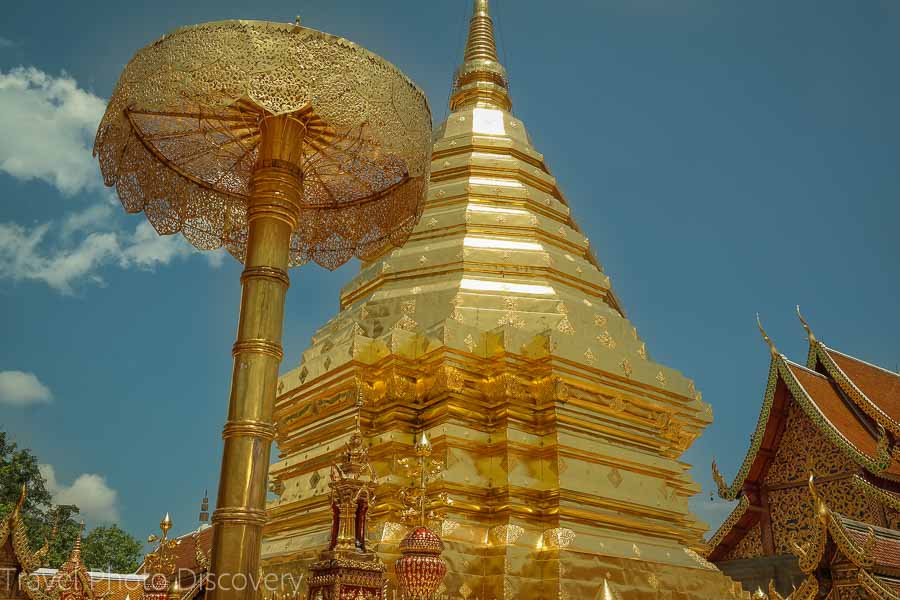
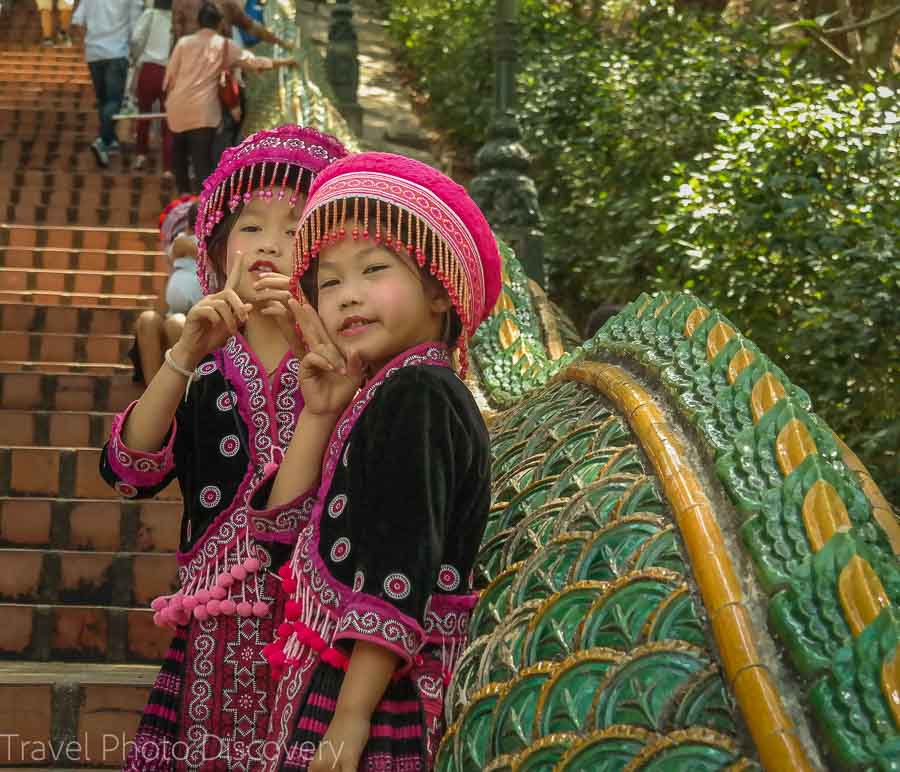
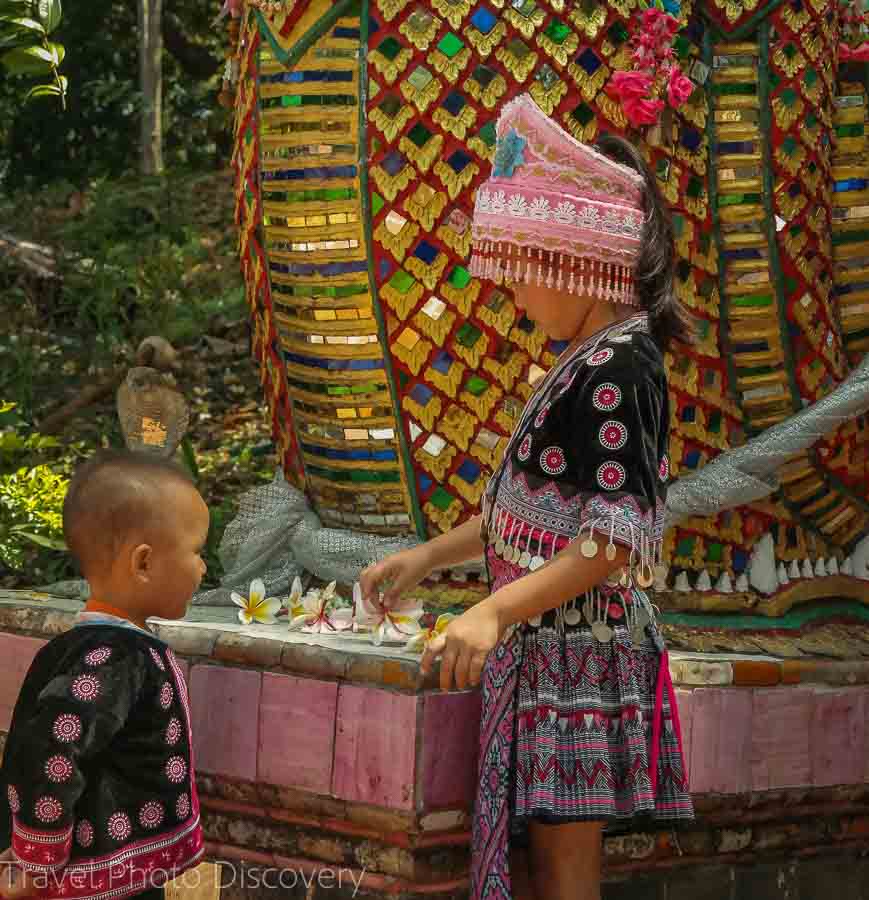
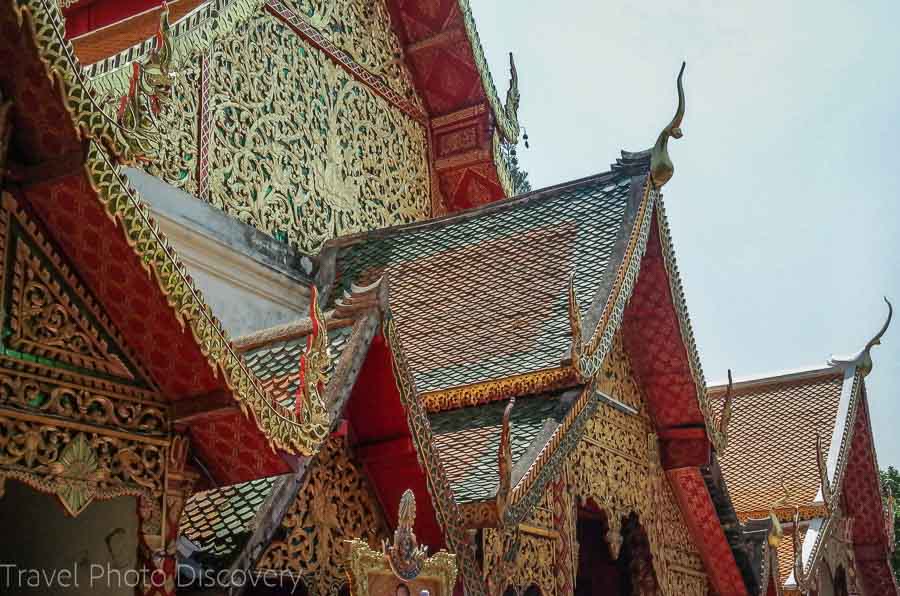
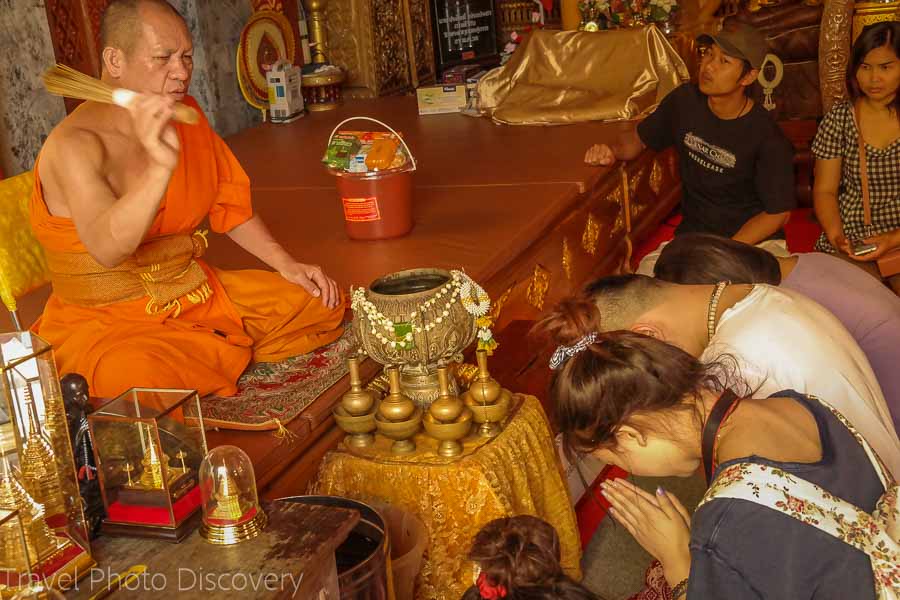
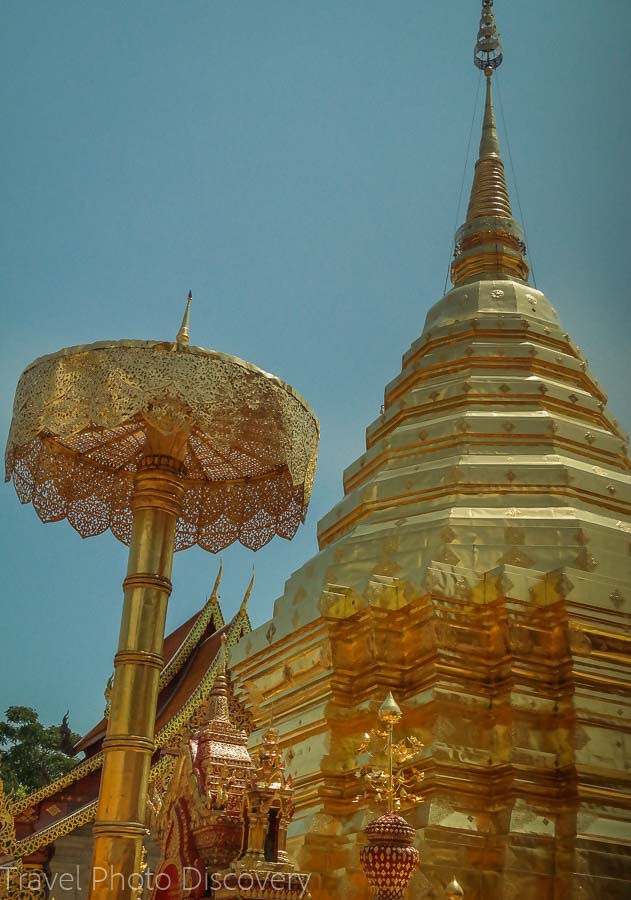
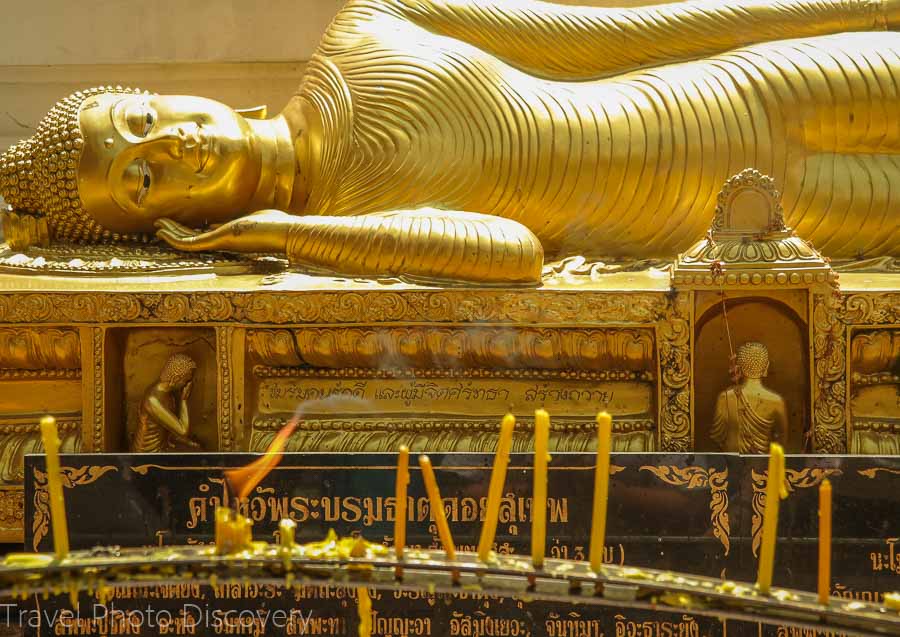
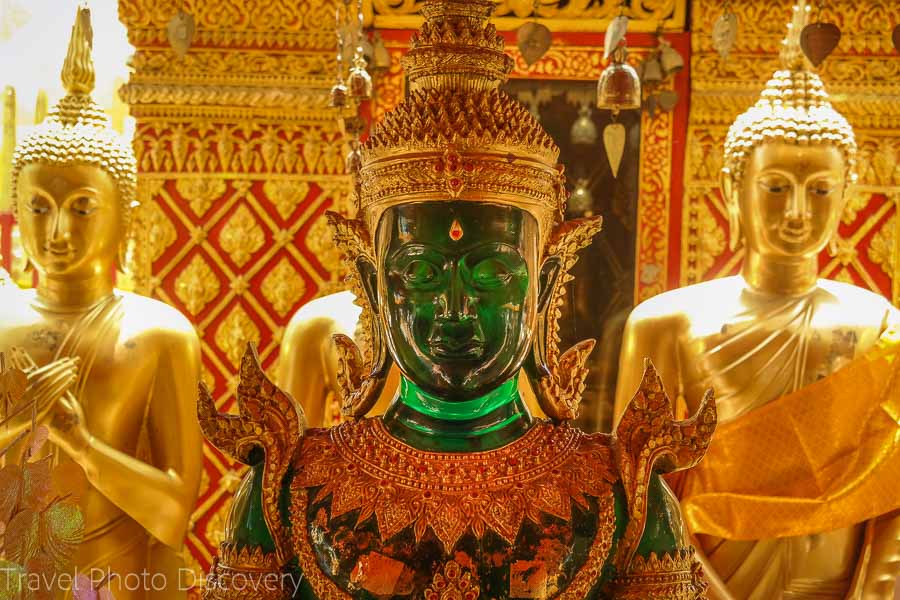
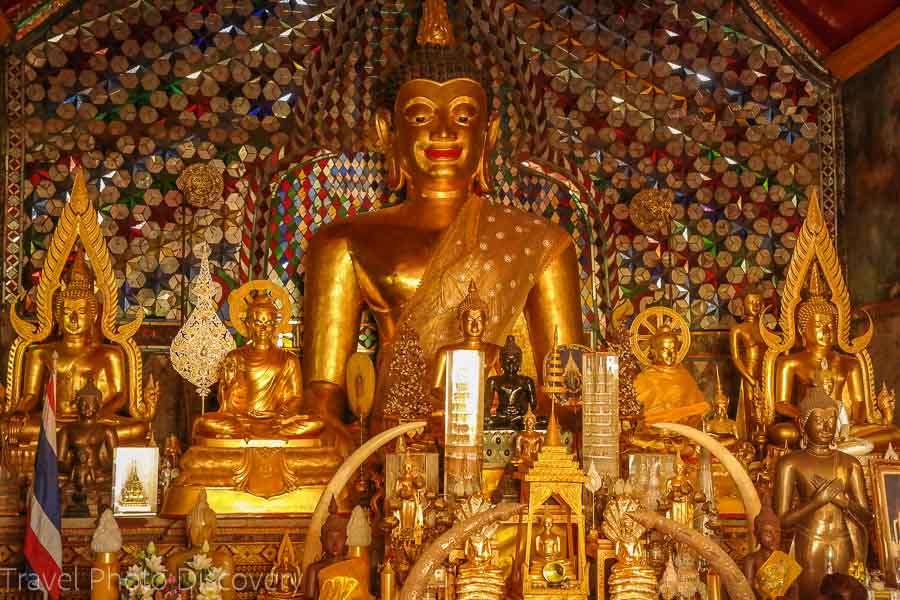
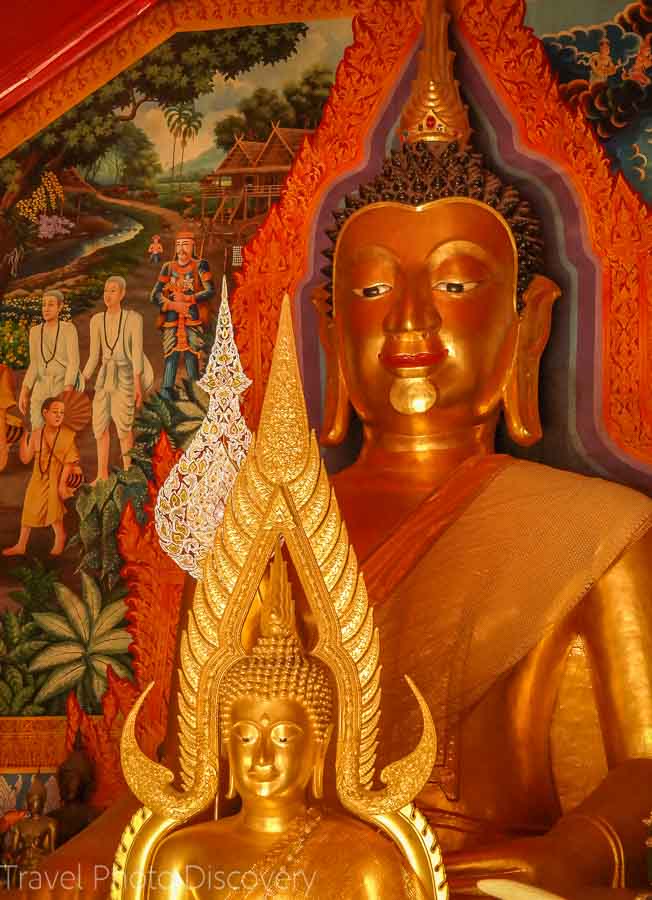
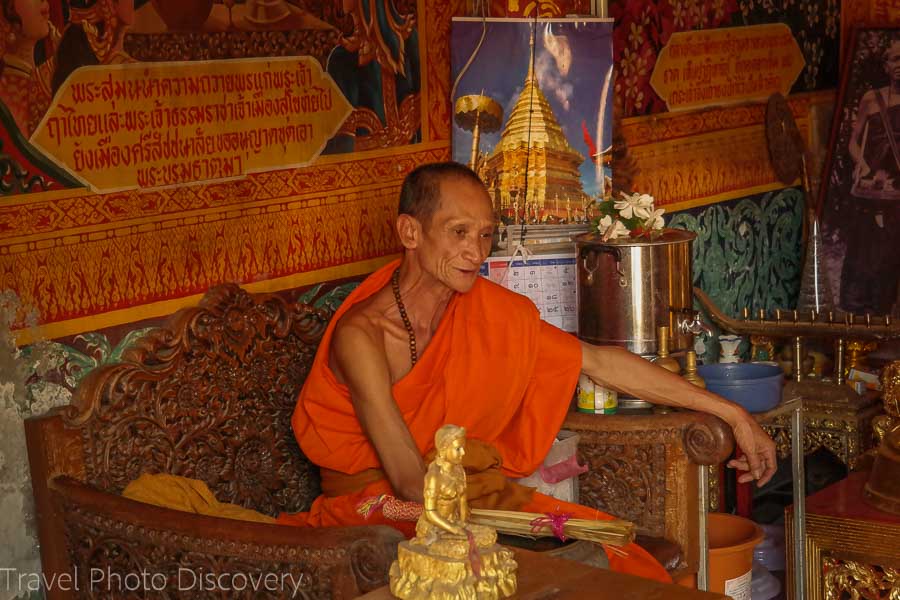
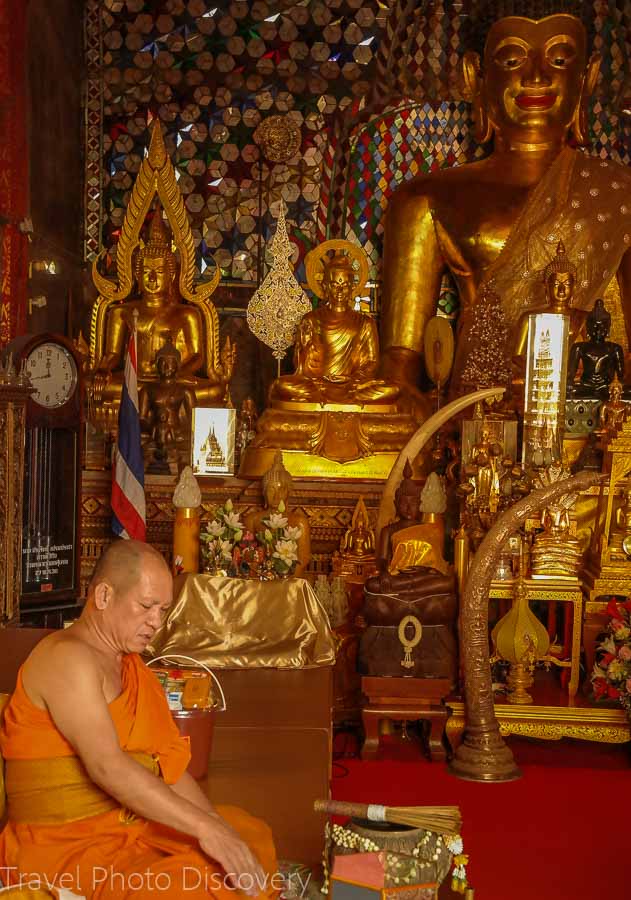
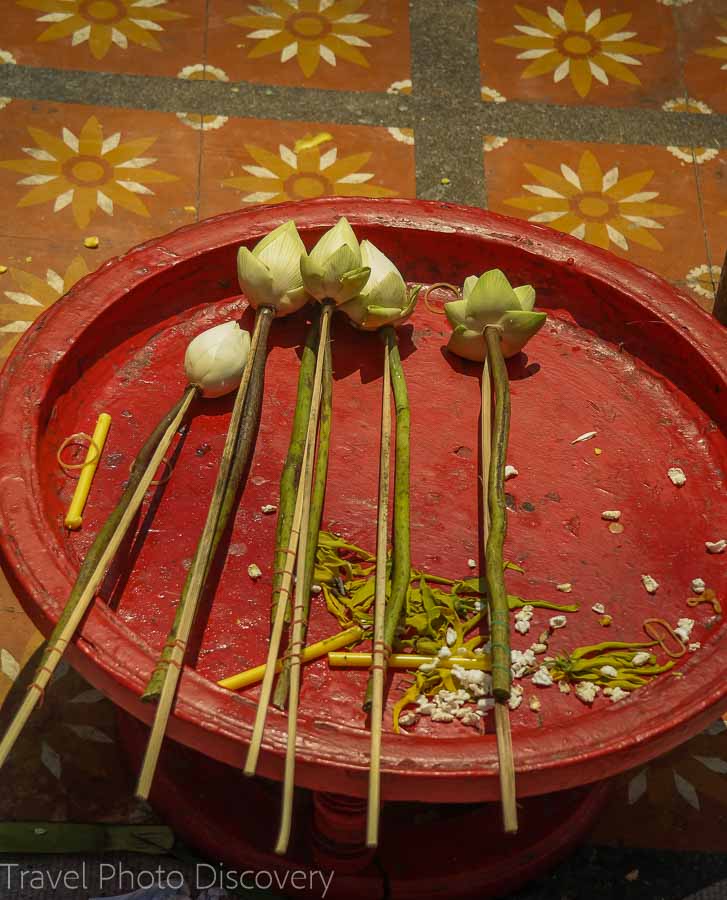
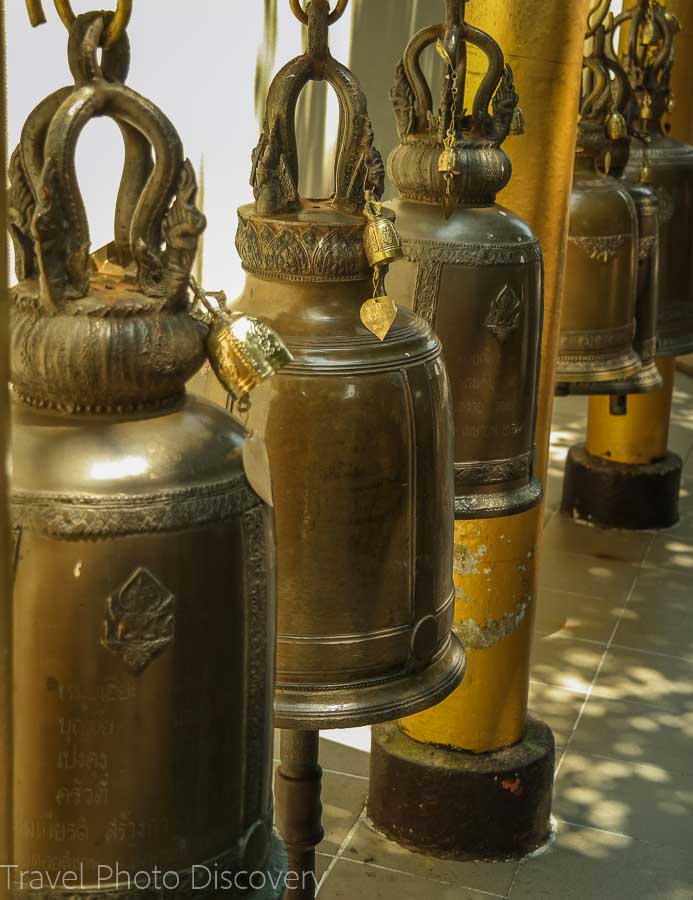
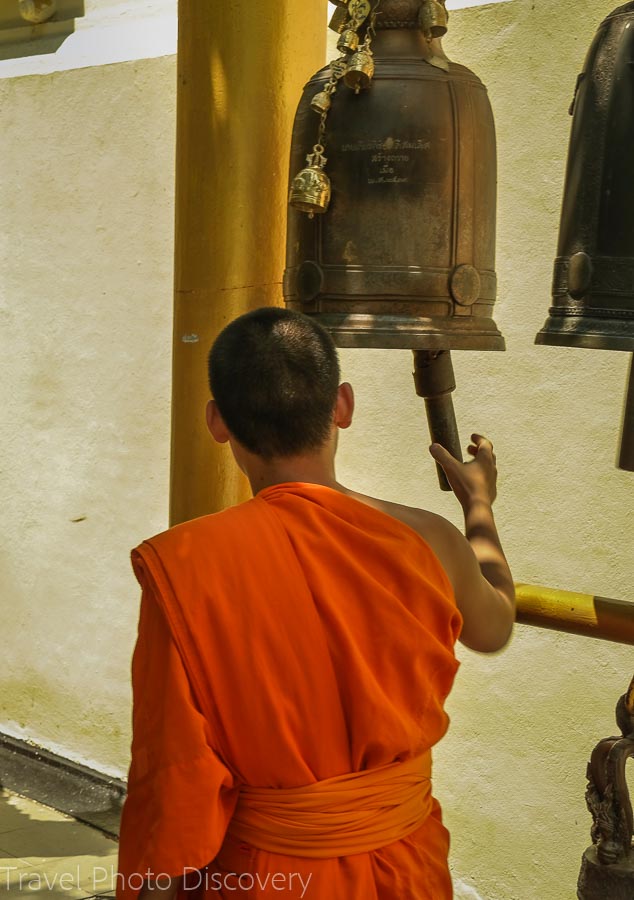
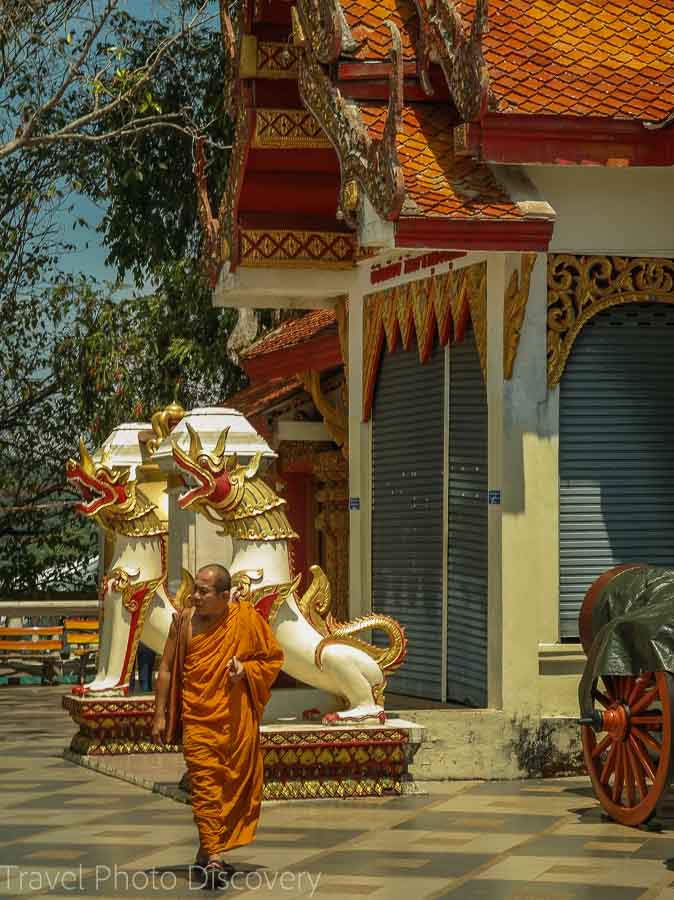
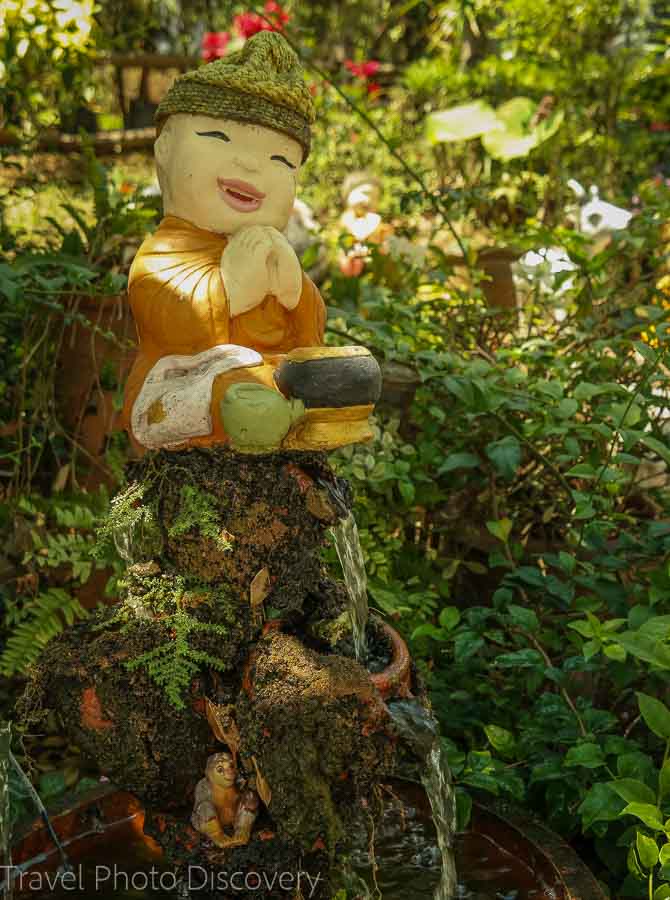
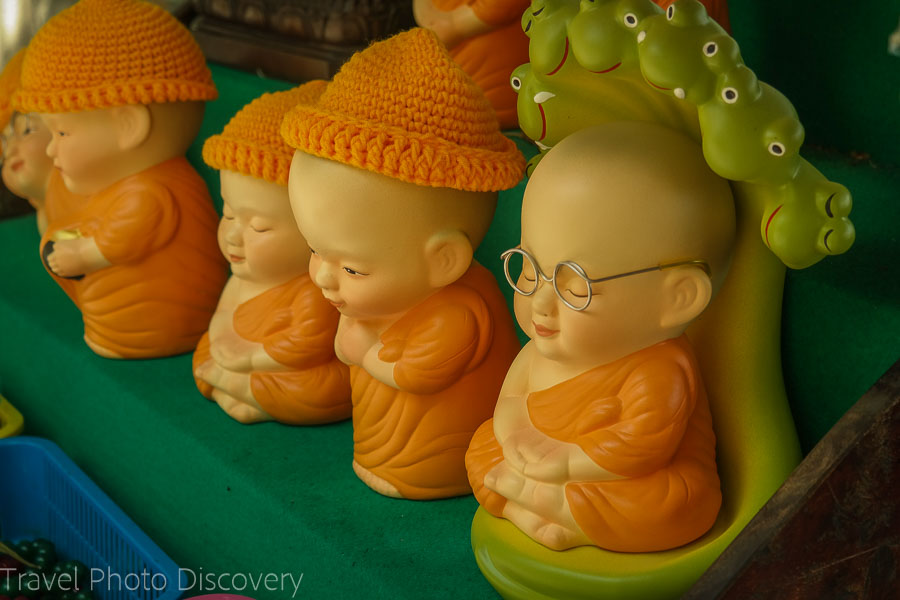
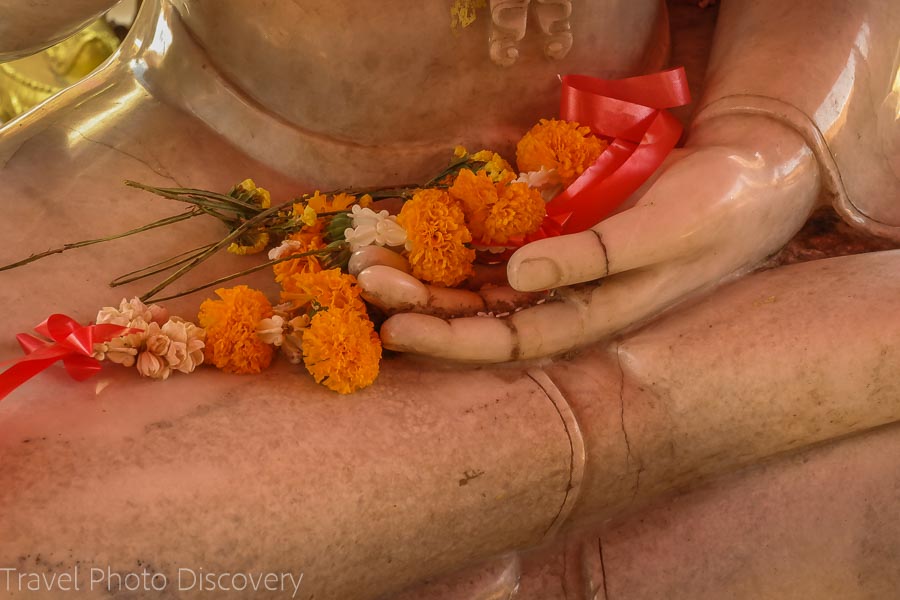

When I was in Chiang Mai I didn’t get a chance to visit Wat Phra That Doi Suthep. I consider it a blessing that I got to visit it through your lovely pictures. I especially liked those sweet little girls in their pink bonnets.
I love your pictures of the kids! They are gorgeous! What an amount of gold on these temples, it’s incredible.
Very nice photos, as always. It was great to finally meet you in person last week.
Noel your photos are breathtaking. The colours, the depth, the stories they tell. You capture Thailand and Wat Phra That Doi Suthep so beautifully.
As always your photos steal the show. What a wonderful set of photos of Wat Phra That Doi Suthep, a place whose name I can’t pronounce or write (I had to copy and paste) in northern Thailand, but which your pictures transform into a magical exotic colorful and warm setting. Thanks for another great posting!
I have yet to visit Thailand, but your photos are very inspiring. The textural intricacy of the Buddha statues is incredible!